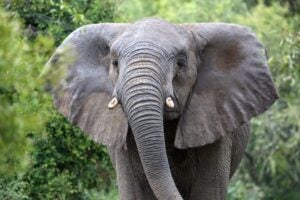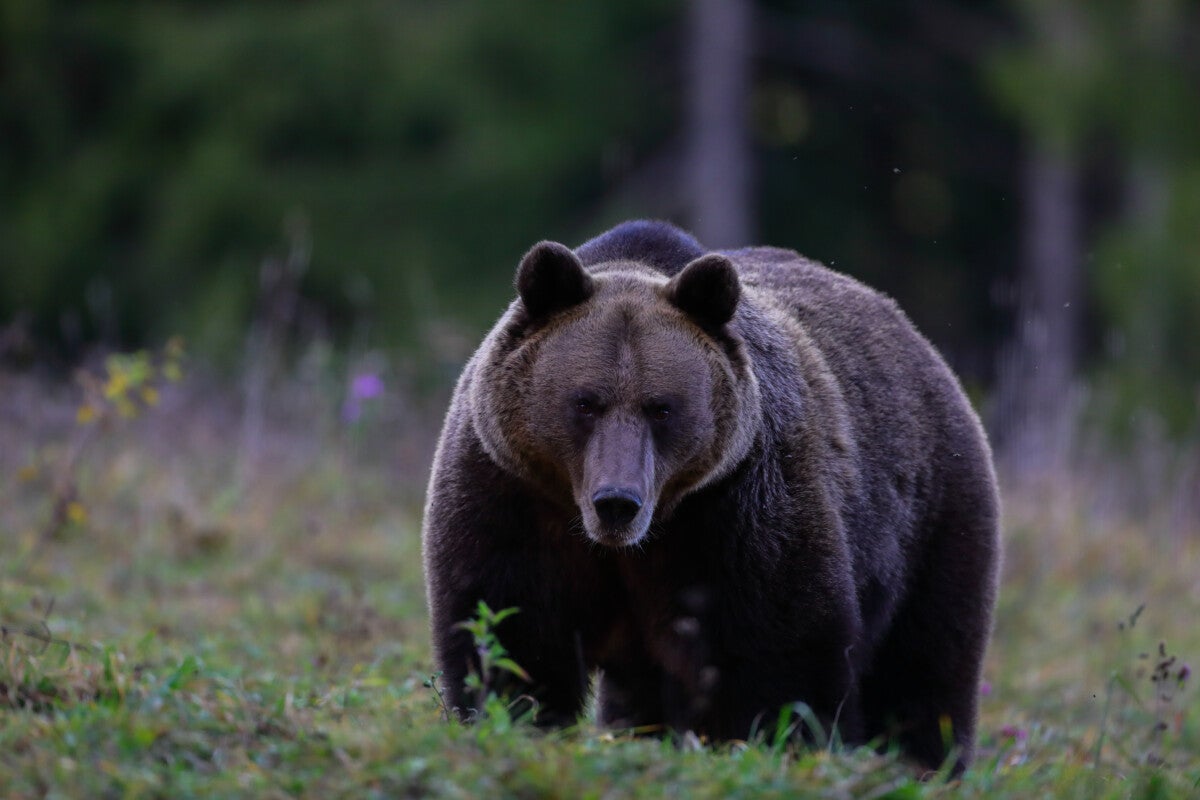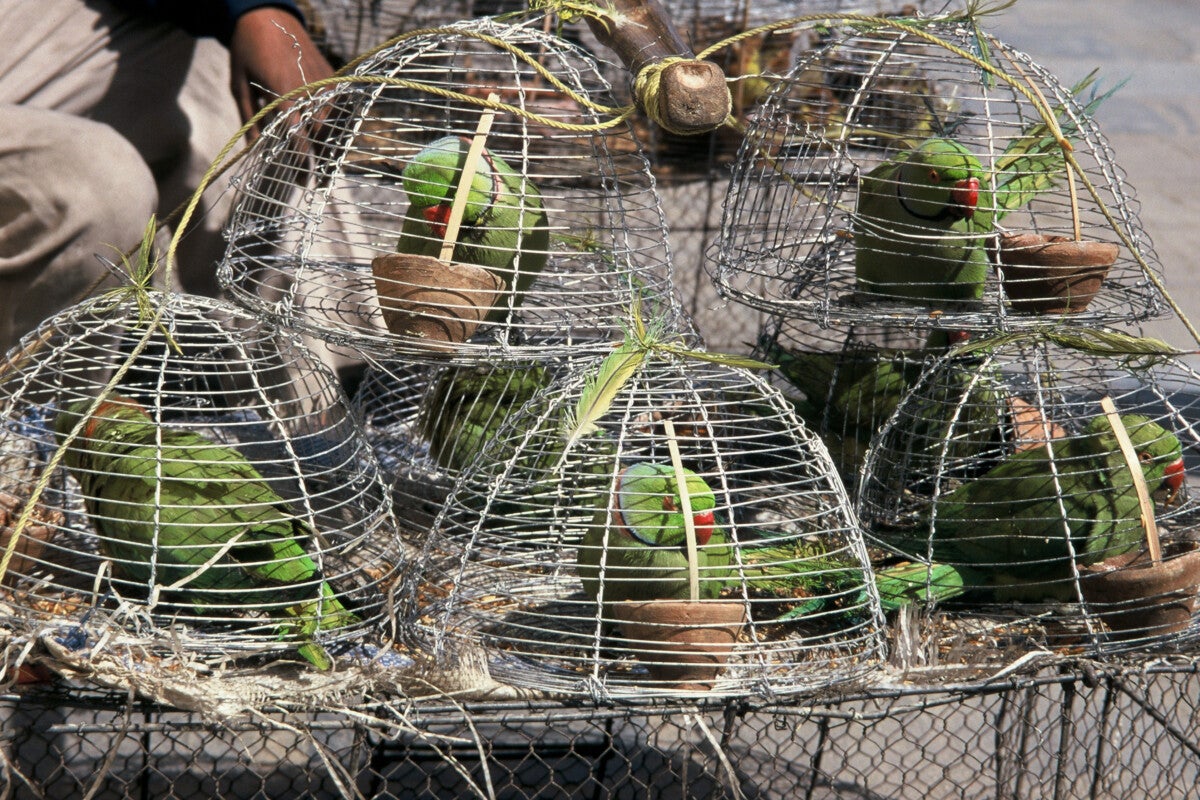At risk
Exploitation of wildlife jeopardizes the survival and welfare of billions of animals every year, including threatened and endangered species. These animals are often killed simply to be made into and sold as a decoration, piece of jewelry or a symbol of wealth, or they suffer horribly only to end up in a life of captivity.
Trophy hunting

Trophy hunters pay huge sums of money to kill wild animals for in-home display. They enter their achievements into record books kept by member organizations. Trophy hunting harms conservation by exacerbating the population decline of many imperiled species. Compared to trophy hunting, wildlife-watching tourism generates far more income to support conservation and provides far more jobs to local people.
Hundreds of thousands of wild mammals, including endangered or threatened species, are slain by trophy hunters each year. Trophy hunters prefer to kill the largest, strongest animals, whose loss causes population declines in lions and leopards, among other species. HSI works to raise public awareness and end corporate support of trophy hunters’ interests, as well as improve legal protections and encourage alternatives.
Take Action: Tell South Africa to prohibit captive breeding of lions for profit
Wolf management
Social, family-oriented, and highly adaptable—wolves have a lot in common with dogs and humans. Old myths and fears plus competition for land and prey threaten the survival of these wild canids. Sadly, wolves are often misunderstood and needlessly shot, poisoned, trapped, and hunted for sport.
In Poland, wolves are tragic scapegoats, blamed for declining moose and caribou populations, when the real threats are factors such as over-hunting, climate change, parasites and the disappearance of vital habitat as extraction industries encroach further into the wilderness.
Bears

The Romanian Government’s stance on the trophy hunting of brown bears is beyond disappointing. Not long ago, the conservation community praised the previous government for taking decisive action to stop the unjustified persecution of Europe’s large carnivores. This change of policy is clearly in response to strong lobbying efforts from the trophy hunting and animal agriculture industries. This order threatens the very survival of bears in Romania.
Wildlife trade
Closing the loopholes in EU wildlife trade Regulations
Many species, particularly reptiles and amphibians, are illegally ‘harvested’ in and exported from their country of origin and yet traded legally in the EU, primarily within the exotic pet trade. This is why HSI/Europe is strongly advocating for supplementary legislation to close the loopholes in the existing EU wildlife trade regulations.
It is important to realise that the Convention on International Trade in Endangered Species of Wild Fauna and Flora (CITES), which regulates wildlife trade, does not cover all illegal wildlife trade. Many threatened species are protected from exploitation in their home countries but are not protected from being traded, either through domestic legislation or by CITES, and such domestic protections are often poorly enforced. In addition, many demand-focused countries have no protections for non-native species.
As a result, wildlife traffickers are able to easily smuggle these animals into legal (or illegal) international trade flows, and once out of their countries of origin, little can be done to stop the trade in these species. To address this devastating practice, HSI believes that it is imperative that the EU commits to adopting legislation that prohibits the importation, transhipment, purchase, and sale of wildlife taken illegally in the country of origin.
Take Action: Sign our Don’t Buy Wild pledge

Wildlife trafficking
HSI/Europe is actively lobbying the EU to demonstrate global leadership in the fight against the illegal wildlife trade and are presently pushing the European Commission to revise the existing EU Action Plan against Wildlife Trafficking after the current one lapses. We believe that they must once again deliver a comprehensive action plan with clearly defined actions to crack down on illegal wildlife trade.
As part of this lobby, we are pushing the European Commission to close the EU domestic ivory market and implement a ban on all ivory imports and (re)exports, without further delays.
Another important instrument in the EU legislative toolbox is the EU Environmental Crime Directive, which is due for revision. HSI believes that this legislation could also greatly contribute to tackling wildlife trafficking as a serious crime, especially in the context of (transnational) organised crime, which can be heavily and consistently penalised in all Member States.
It is vital that wildlife crime is recognised as a serious criminal activity. It should be heavily penalised to dissuade people from engaging in illegal activities that are highly damaging to biodiversity and the survival of species, but which are presently viewed as being relatively low-risk and high income generating due primarily to the lack of severe penalties and low chances of being apprehended or prosecuted.
Protecting wildlife through trade policy
HSI/Europe maintains that trade agreements, if drafted appropriately and allocated necessary resources, can offer a platform to influence positive change for the lives of animals. This is why we actively lobby the European Commission to ensure that any Free Trade Agreements (FTAs) negotiated by the EU with other countries include strong provisions on the protection of wildlife and their habitats.
FTAs are not only an instrument by which countries and regions can be impelled to properly enforce and implement the multilateral environmental agreements to which they are signatories, but can also be used to make commitments to tackling wildlife trafficking and provide technical assistance, training and capacity building to help protect wildlife through increased development cooperation.
The implementation of FTAs, particularly the chapters on trade and sustainable development, is also important. This is why, for example, HSI/Europe has joined the EU Domestic Advisory Group for the EU-Vietnam trade agreement to be able to push strongly for good implementation of the provisions concerning wildlife protection.
